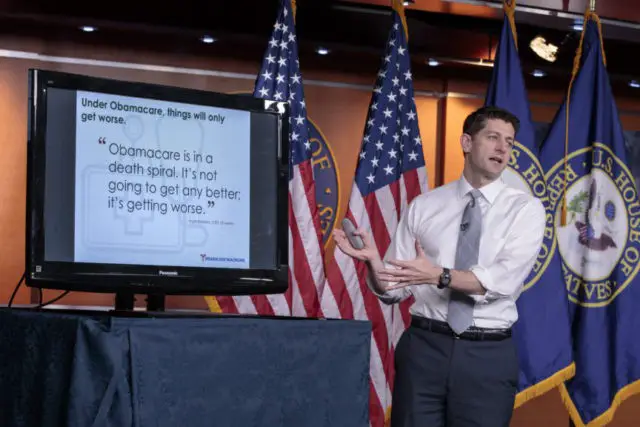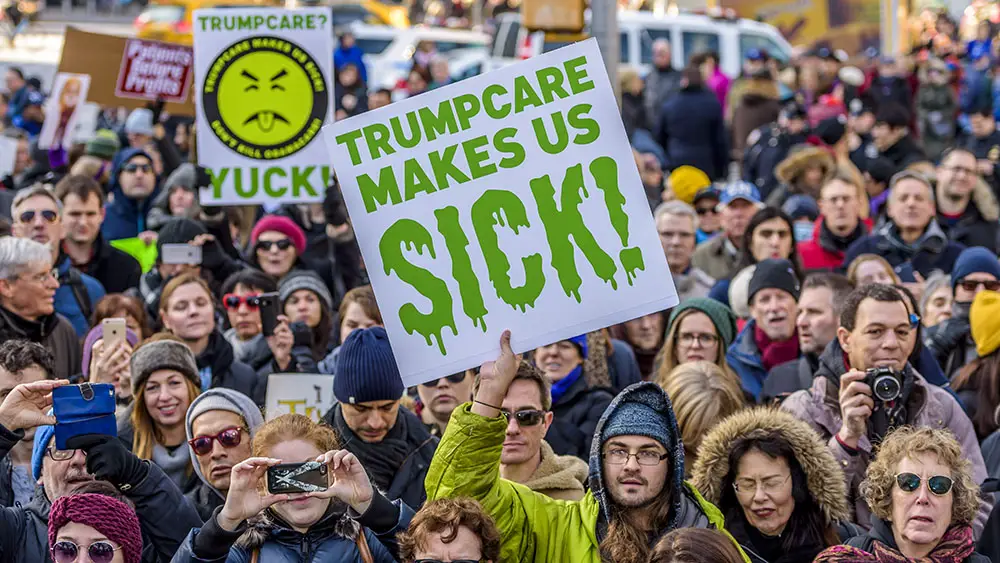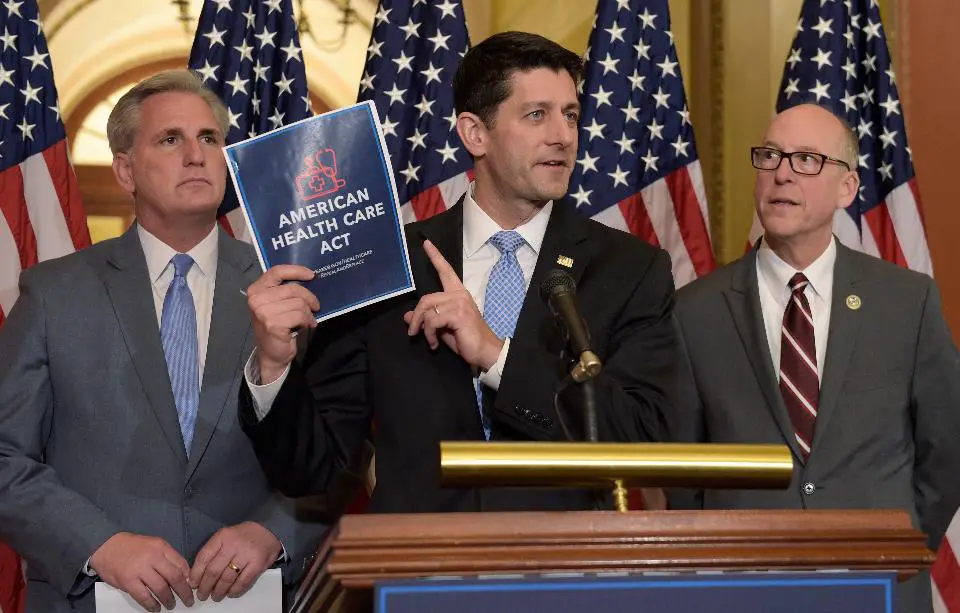The Future of American Healthcare
The Republicans’ newly proposed plan promises increased choice and lower prices, but theorists predict otherwise.
By Phillip Bugajski, Loyola University Chicago
“Repeal and Replace” was the talk on the hill regarding the Affordable Care Act (ACA), known as Obamacare, but it’s time to cut the talk.
Republicans under Paul Ryan need to pass a better bill, or at least, one that doesn’t cater to the one percent so blatantly as the American Health Care Act (AHCA).
With the repeal of the Affordable Care Act, the American people are lost in space, hanging between the eras of what was inclusive coverage and what will soon be more expensive premiums. While those are significant claims, the American Health Care Act, known as Ryancare or Trumpcare, could change coverage for the majority of Americans.
The biggest change between the ACA and AHCA is that there is no longer a government mandate for individual coverage. The people who authored the bill, whoever they are, no longer require individuals to have health insurance, claiming to provide people with a choice.
This clip from “The Daily Show” sums up just how much of a “choice” people have without health coverage. Overall, the amount of uninsured people in the U.S. would increase significantly under the act.
Next, the law would change how citizens are able, or in many cases, aren’t able to pay for their health insurance. Under the Affordable Care Act, a person received income-based subsidies from the federal government in order to pay for immediate costs of hospital visits.
Additionally, they received annual tax credits for out-of-pocket expenses. Under the American Health Care Act, tax credits would be calculated based on age group. You don’t get subsidies to help pay your bills right away, but you can get a slight write-off, if you can wait a few months.

Based only on age, a person with a terminal illness can receive the same amount of tax credit as a healthy person. Grouping people based on a single quality always works out well, right?
Studies show that premiums would increase most for older Americans, who typically have more health issues. If Obamacare’s individual mandate is repealed, fewer people will be insured. So, insurance companies will make profits by increasing costs to ungodly amounts for people who need to keep their insurance.
The proposed tax credits are not enough. The Congressional Budget Office has shown that credits alone are not sufficient to cover the cost of insurance for most Americans.
While mainstream Republicans got caught up in the mantra of “repeal and replace,” they failed to consider that what they repeal and what they replace it with don’t match up; people lose the ability to pay while costs go up, so more people lose out. Hey, healthcare law is difficult. Who knew?
Additionally, under the AHCA, individual Medicaid funding from the states would be jeopardized. If the federal government doesn’t help cover state expenses, which are used to cover citizens, then every state will eventually be unable to help pay for its people’s healthcare.
At least the current legislature understands that people need coverage in areas like prenatal care and mental health; now, it’s just getting them to understand that these things cost money. Better yet, it may be beneficial to tell the current legislature that cutting major areas of funding and calling it “choice” doesn’t work out.
The AHCA would also defund Planned Parenthood, yet again showing that it’s not benefitting the American people, especially given all the services Planned Parenthood provides for women’s health.
Reducing the poverty-line eligibility for low income people from 138 percent to 100 percent of the federal poverty line is not going to allow them to have a choice in coverage. When so many have a hard time understanding the insurance system, looking to some of the most vulnerable members of society and pulling the rug out from under them is indefensible.
Perhaps some of the most distasteful changes to healthcare law have not yet been brought to the public’s attention. You don’t have to have insurance, but if you decide to get it because you want basic medical care, then you are liable to have a surcharge of up to 30 percent of your premium for not having continuous coverage. You can choose healthcare, but if you change your mind, it’ll cost you.
Hey, at least it’ll save costs for small business owners. Everyone was concerned that they would be forced to lay off employees because the Affordable Care Act would increase their costs. Well, no.
The act repeals tax credits for low-wage, small businesses. So, you know that charming, yet struggling local business that you make an extra effort to support? Their government assistance was just cut, majorly. Even if it does reduce premiums, those businesses can’t guarantee coverage for employees.

At the very least, working for a large corporation will get better; they can afford to pay for an employee’s insurance. Again, no.
The Affordable Care Act made sure that large companies that did not provide health benefits were penalized on their taxes. The American Health Care Act repeals this provision, so those corporations don’t even get penalized for not insuring their employees.
With everything that’s going to happen if the American Health Care Act is passed, it’s no wonder that the Congressional Budget Office predicts that up to fourteen million people would lose insurance by 2018, and up to twenty-four million by 2026. Not only would the act strike out crucial elements of healthcare, but it would make sure that more people than ever are uninsured, just for a minor cut to the national deficit.
In every cloud, there is a silver lining: Young adults will be able to stay on their parents’ insurance plans until they turn twenty-six.
As it appears now, it doesn’t seem like Republicans will try to repeal the provision that prohibits insurance companies from denying coverage to an individual simply because of a pre-existing condition, nor are there caps on lifetime insurance spending.
But, you can’t say that those are good things about the AHCA. Those provisions were created under Obamacare, and they are merely not being repealed. So, really, the best part of the AHCA is that it won’t fuck up absolutely everything.
In the wake of the debates over the upcoming vote on the act, set for Thursday, you’d think that there would be some sort of good faith from the authors of the bill to reach more moderate republicans, who have widely criticized the act.
But even as late as Monday, changes were proposed that cater even farther right and to more corporate interests, such as expediting the repeal of Obamacare taxes and penalties within the year.
It’s not enough that the right wants to take away healthcare; they want to do it now. Unfortunately, this healthcare reform has shown that, contrary to what Trump and the GOP promised, putting America and Americans first is one of the things at the bottom of their agendas.
















